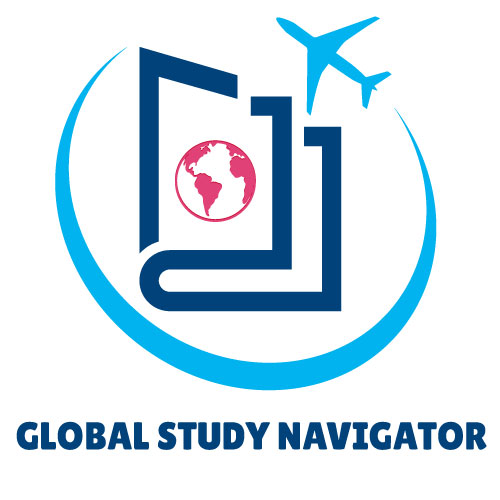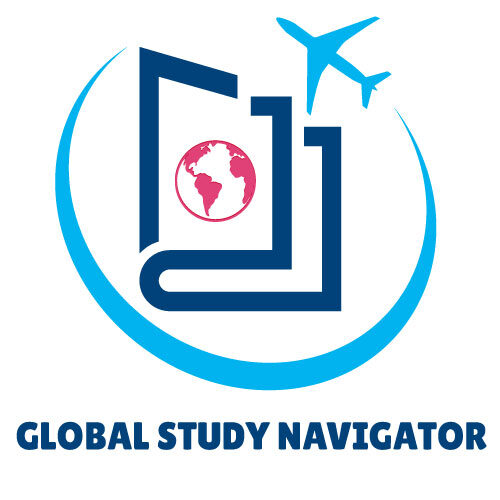Study In Canada
Imagine getting a top-notch degree from a Canadian university and confidently starting your dream
Scholarship
Work Rights
Quick VISA

A Complete Guide to Studying in Canada for International Students: Unlock Your Potential
Canada is known for its outstanding education system, diverse culture, and promising opportunities after graduation.
Many students from around the globe are drawn to the idea of studying in Canada, as shown by the high number of searches for this topic.
In this guide, we’ll delve into why Canada is such a popular choice for International Students and how you can make the most of your educational journey in this amazing country. Let’s explore the wonderful opportunities waiting for you in Canada!
Why Study in Canada?
Canada consistently ranks among the top destinations for international students, and for good reason! Here’s a closer look at the many benefits you’ll enjoy by choosing to study in Canada:
Top-Tier Education
Canadian universities and colleges have an excellent reputation for academic excellence. Many institutions rank highly in the international rankings, and their degrees are recognized and respected by employers worldwide.
Affordability Advantage
Compared to other popular study destinations like the US or UK, Canada offers a more affordable option. This is especially true when considering the overall cost of education, including tuition fees and living expenses (which we’ll explore further on).
Program Variety
Explore a wide range of programs across various fields. Whether you’re passionate about engineering, business, arts, or anything in between, you’re sure to find a program that aligns perfectly with your academic goals and interests.
A Welcoming Embrace
Canada is known for its multicultural society and welcoming atmosphere. You’ll find a safe and inclusive environment where people from all backgrounds feel respected and valued.
Massive Experience
Canadian institutions often integrate co-op programs into their curriculum, allowing you to gain valuable work experience while you study. This practical experience can give you a competitive edge in the job market after graduation.
Plus, Canada offers generous post-graduation work permit programs, giving you the opportunity to stay back and gain valuable Canadian work experience.
Live the Dream
Canada boasts a high quality of life with breathtaking natural landscapes, vibrant cities, and a stable government.
From exploring the majestic Rocky Mountains to immersing yourself in the multicultural energy of Toronto, Canada offers an unforgettable student experience.
Requirements for Undergraduate and Postgraduate Studies in Canada
Now, let’s delve into the academic requirements for international students applying to undergraduate and postgraduate programs in Canada.
Undergraduate Programs in Canada
Eligibility Criteria
- To be eligible for undergraduate studies, you need a high school diploma or an equivalent qualification from your home country.
- Canadian universities often expect a minimum GPA (Grade Point Average) of 2.5 to 3.0 on a 4.0 scale (which corresponds to approximately 77% to 85%).
Language Proficiency
- English Proficiency: Most Canadian universities require proof of English proficiency. You can demonstrate this through standardized tests like the IELTS (International English Language Testing System) or the TOEFL (Test of English as a Foreign Language).
- French Proficiency: For programs offered in French-speaking provinces (such as Quebec), proficiency in French is essential. The TEF (Test d’évaluation de français) is commonly accepted French proficiency assessment.
Application Process
- Choose a suitable program and check the intake periods (usually Fall, Winter, or Spring).
- Visit the university websites to understand the application process, deadlines, and specific requirements for international students.
- Apply through the official application portal, pay the application fee, and submit all necessary documents.
Postgraduate Programs in Canada
Eligibility Criteria
- You’ll need a recognized undergraduate degree from an accredited institution for postgraduate studies (master's or doctoral programs).
- Some programs may require relevant work experience or specific prerequisites related to your field of study.
English Language Proficiency
- English Proficiency: Most Canadian universities require proof of English proficiency. You can demonstrate this through standardized tests like the IELTS (International English Language Testing System) or the TOEFL (Test of English as a Foreign Language).
- French Proficiency: For programs offered in French-speaking provinces (such as Quebec), proficiency in French is essential. The TEF (Test d’évaluation de français) is commonly accepted French proficiency assessment.
Student Visa Application Process for Canada
- Similar to undergraduate admissions, you must demonstrate English proficiency using tests like IELTS or TOEFL.
- French proficiency may be necessary for certain programs, especially in Quebec.
Standardized Test Scores
While not mandatory for all programs, some may consider standardized test scores:
- GRE (Graduate Record Examination): Commonly required for graduate programs in fields like engineering, natural sciences, and social sciences.
- GMAT (Graduate Management Admission Test): Often needed for business-related master’s programs (such as MBA).
Financial Considerations for Studying in Canada
Here are the financial aspects of studying in Canada, including tuition fees, cost of living, and scholarship opportunities for international students:
Tuition Fees
Undergraduate Programs
Postgraduate Programs
Tuition fees for postgraduate studies (master’s or doctoral programs) also vary. On average, international students pursuing postgraduate degrees pay approximately CAD 36,100 (varies) per year.


Cost of Living
The cost of living in Canada includes various expenses such as accommodation, food, transportation, and other essentials. Here’s a breakdown of monthly living costs in some major Canadian cities:
- Toronto: Approximately CAD 4,813 per month for a family of three.
- Vancouver: Around CAD 5,119 per month for a family of three.
- Montreal: Roughly CAD 3,388 per month for a family of three.
Scholarships for International Students
Canada offers various scholarships to support international students. Here are some notable scholarship programs:
Study in Canada Scholarships
- These scholarships provide short-term exchange opportunities for study or research at Canadian post-secondary institutions.
- Available for international students from various countries and territories.
- Check the eligibility criteria and apply through the official portal.
Canada-China Scholars’ Exchange Program
- Offers scholarships to Canadians wishing to pursue short-term study, research, or Chinese language training in China.
- Enhance your academic experience through this exchange program.
Emerging Leaders in the Americas Program
- Provides exchange opportunities for students from Latin America and the Caribbean to study or research in Canada.
Bank Statements & Financial Proof
Now, Let’s dive into the financial aspects of studying in Canada, focusing on the essential requirements for obtaining a student visa.
Proof of Acceptance:
- Your school must provide you with a letter of acceptance. Include the original or an electronic copy of this letter with your study permit application.
- If you’ve been conditionally accepted, you’ll need to complete prerequisite courses (e.g., language courses) before starting your main study program. Your study permit will be issued for the duration of these courses, plus one year. After being accepted into your main program, apply for a new student permit to extend your stay as a student.


Proof of Identity:
- When applying for your study permit, you and each family member accompanying you to Canada must have a valid passport or travel document.
- If applying online, upload a copy of the information page of your passport during the application process. If approved, you’ll need to send your original passport.
Proof of Financial Support:
- Demonstrating sufficient funds to cover tuition fees and living expenses is critical. You must prove that you can support yourself and any accompanying family members while in Canada.

Accepted forms of financial proof include
- Canadian Bank Account: Show proof of a Canadian bank account in your name, especially if you’ve transferred money to Canada.
- Guaranteed Investment Certificate (GIC): Obtain a GIC from a participating Canadian financial institution.
- Bank Statements: Provide your bank statements for the past four months.
- Student or Education Loan: If you have a loan from a bank, submit documentation.
- Tuition and Housing Fees: Show proof of payment for tuition and accommodation.
- Letter of Funding: If someone else (a person or educational institution) is providing financial support, include a letter from them.
The Immigration Process
Now, it’s time to talk about the general steps involved in the student visa application process for Canada. Let’s take a look
Receive Admission Letter
- First, obtain an official acceptance letter from a Designated Learning Institution (DLI) in Canada. This letter confirms your enrollment in an approved educational program.
Research Visa Requirements
- Country-Specific Requirements: Investigate the specific study permit requirements based on your country of origin. Each country may have unique guidelines.
- Eligibility Criteria: Ensure you meet the eligibility criteria, including financial capacity, health, and security checks.
Prepare Documents
- Letter of Acceptance: From the DLI.
- Provincial Attestation Letter (PAL): Required since January 22, 2024, for most students planning to study in a specific province or territory.
- Valid Passport: Ensure your passport is up-to-date.
- Financial Proof: Bank statements, GIC (Guaranteed Investment Certificate), or other evidence of funds.
- Medical Examination: Visit a panel physician for a medical check-up.
Apply Online
- Apply for your study permit online through the official portal.
- You’ll need a scanner or camera to create electronic copies of your documents and a valid credit or debit card for payment.
- Use the Student Direct Stream if eligible for faster processing.
Prepare Documents
- Complete the online application form accurately.
- Include all required documents.
- Write a letter of explanation if any documents are missing due to COVID-19.
Decision and Visa Issuance
- After submission, wait for a decision on your application.
- If approved, you’ll receive your study permit.
Seek Professional Guidance
- While you can navigate the process independently, consider seeking advice from an immigration lawyer or a registered consultant. In this case, we, Education Seed Global are offering you the best services you’ll ever know.
- We can provide you with personalized assistance, help you understand complex requirements, and ensure your application is error-free.
Final Thoughts
In conclusion, studying in Canada offers unmatched opportunities for international students. With top-tier education, affordable costs, and a welcoming environment, Canada stands out as a premier study destination.
From diverse program options to post-graduation work opportunities, it’s a pathway to a bright future. If you’re ready to embark on this exciting journey, don’t hesitate to reach out for personalized guidance.
Let us help you navigate the visa application process smoothly. Contact us now for a free consultation and unlock your potential in Canada!
We’re excited to help make your dreams of studying in Canada a reality.

MSc, PhD, Postdoc
Varsity Resource shares information about Processors availability to take new student.
Scholarship Offer
Scholarship offer around the world can be see in a single platform
Research Offer
Research offer from professor or in a team can be found easily here
Higher Education
Varsity Resource helps student to find there dream education opportunity





